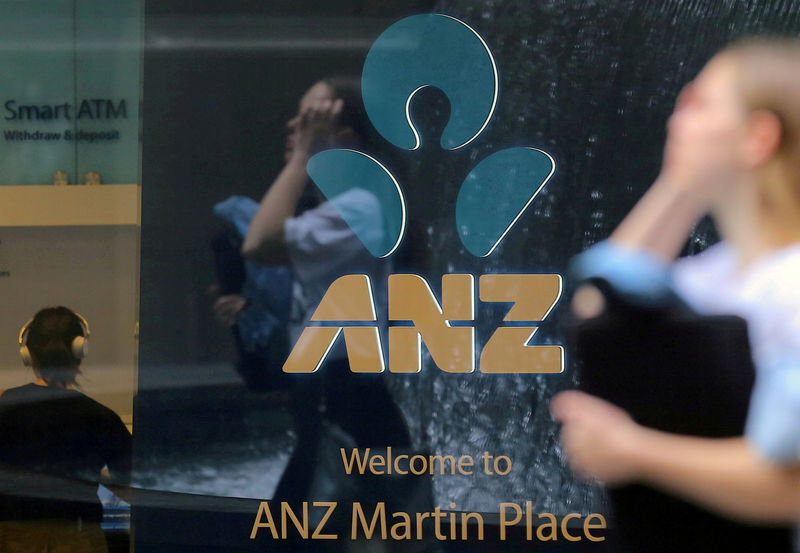By Paulina Duran and Byron Kaye
SYDNEY (Reuters) - Australian authorities have charged the former local bosses of Citigroup Inc (NYSE:C) and Deutsche Bank AG (DE:DBKGn) with "criminal cartel offences" over a $2.3 billion stock issue, one of the country's biggest cases of alleged white-collar crime.
The tally of names disclosed on Tuesday showed the ambition of newly empowered antitrust regulator, the Australian Competition and Consumer Commission (ACCC), which revealed on Friday it planned to seek charges against the investment banks over a 2015 share-raising for Australia and New Zealand Banking Group Ltd (ANZ), plus ANZ itself.
The regulator said charges over the share placement have been laid against Citi's former Australia head Stephen Roberts, its current local head of capital markets John McLean and its London-based head of foreign exchange trading Itay Tuchman, along with Deutsche's former local chief Michael Ormaechea and former local capital markets head Michael Richardson.
It said charges were also laid against ANZ, its treasurer Rick Moscati, as well as the two investment banks.
"These serious charges are the result of an ACCC investigation that has been running for more than two years," ACCC Chairman Rod Sims said in a statement. He declined to comment further since the matter was before the court.
ANZ, Citi and Deutsche have previously said they would defend the charges. After the names of the people being charged were released, Deutsche said it continued to believe it and its staff had acted responsibly, in the interests of clients and legally.
"Both Michael Ormaechea and Michael Richardson are highly regarded and have our full support," a spokeswoman said in an email.
Citi, which has said the regulator appeared to have criminalized standard practices in capital raisings without warning, and ANZ were not immediately available for comment.
The charges come at difficult time for Australia's financial sector which is facing a year-long public misconduct inquiry that has brought embarrassing headlines on an almost daily basis.
Earlier this week, the country's biggest lender, Commonwealth Bank of Australia (CBA), paid a record A$700 million ($535 million) to settle a civil lawsuit in which it was accused of more than 50,000 breaches of anti-money laundering protocols.
The charges against ANZ and its investment banks, which can carry hefty fines and 10-year prison terms, could lead to changes in the way institutional capital raisings are handled, and do further damage to the reputation of Australian lenders.
The placement was made when Australian banks were under pressure to meet new capital requirements, which prompted ANZ and CBA to raise a combined A$8 billion in a single week.
The regulators disclosed the names of the people charged after the close of share trading on Tuesday. ANZ shares closed down 0.3 percent, in line with the broader market, but are down 7 percent since the inquiry started in February.
The ACCC has been building a team of investigators since cartel conduct was criminalized in 2009, and was further empowered last year with new laws governing competition.
The Commonwealth Director of Public Prosecutions, which brought the charges on behalf of the ACCC, said further details would not be made public until after the first court appearance in Sydney on July 3.
